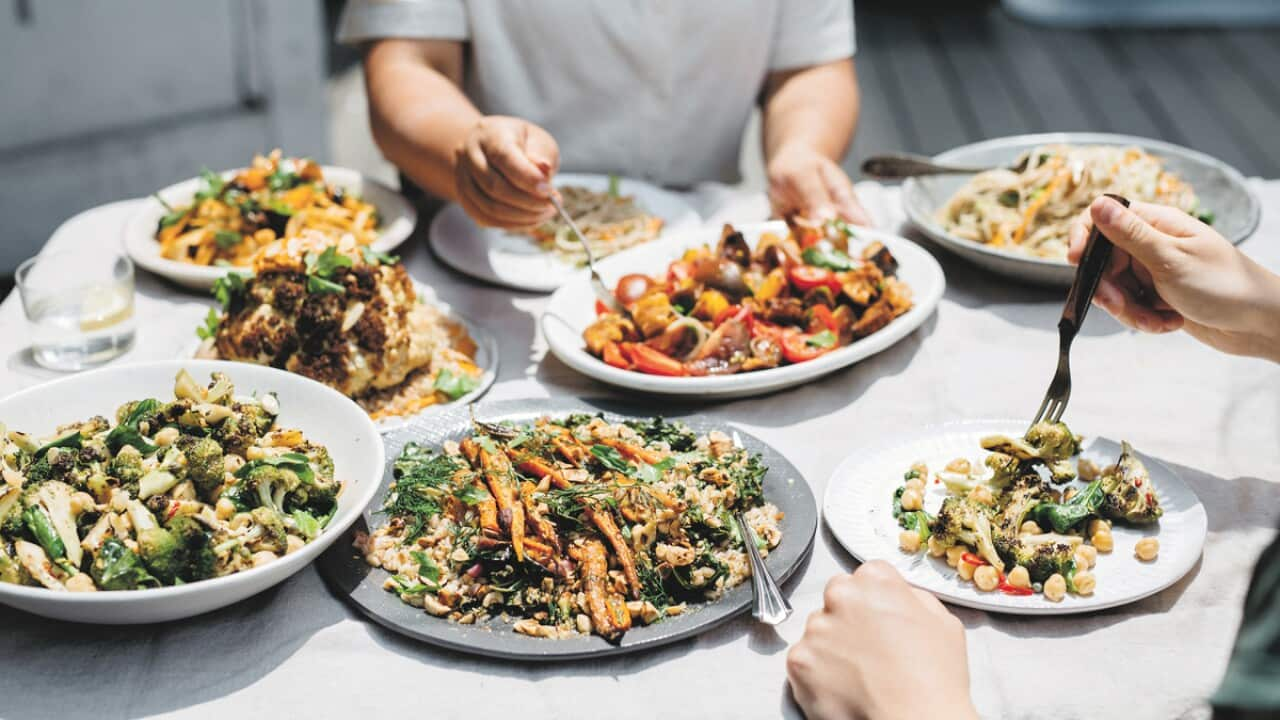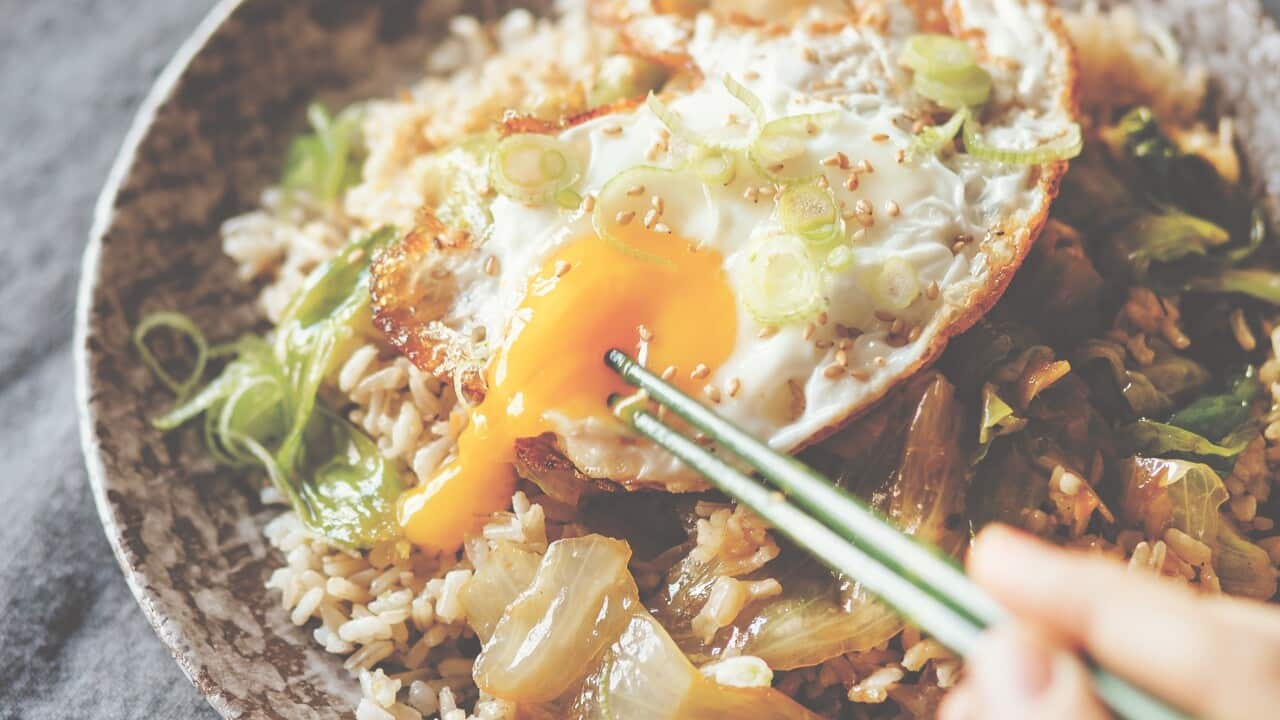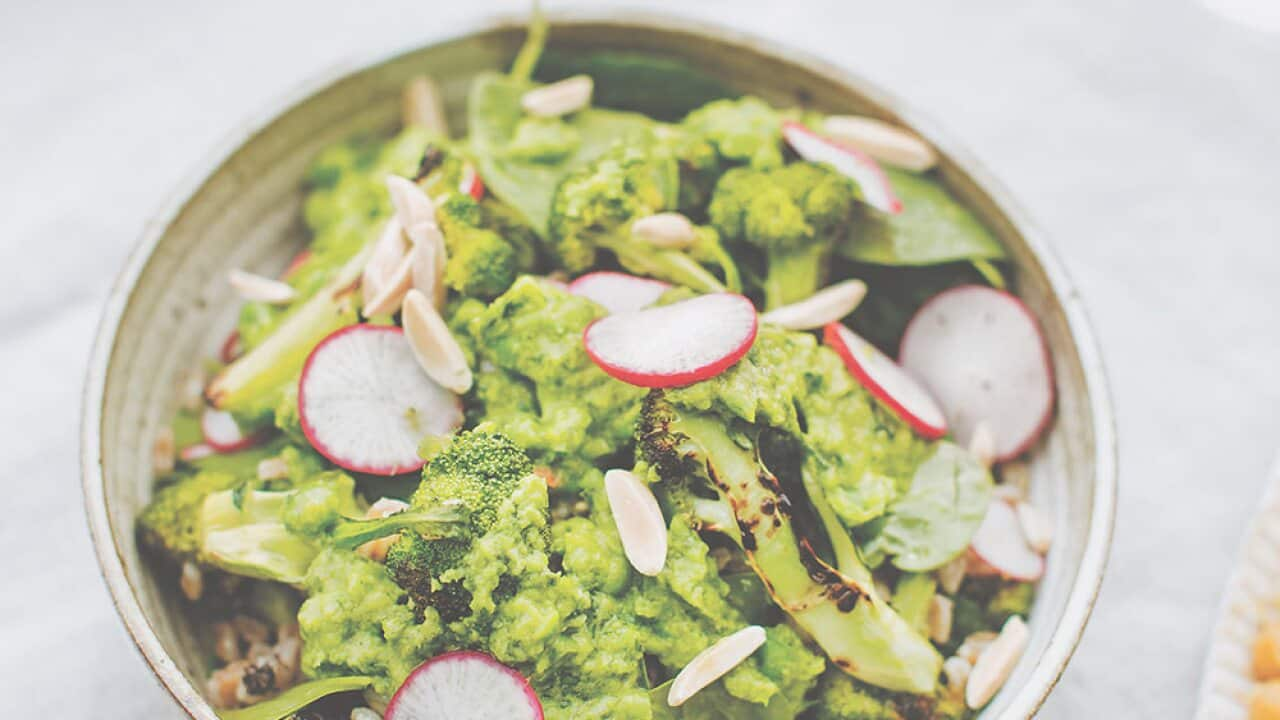Hetty McKinnon grew up in a Sydney household with three freezers, a stovetop permanently crowded with simmering pots, and countless jars and boxes that featured clues about her future meals.
These memories strongly inspire , which follows on from the fifth-anniversary edition of her bestselling cookbook.
"Food was at the core of every activity in our home," she says. The constant sound of her mother's wok chuan (spatula), the omnipresent hum of the kitchen exhaust fan, the clash of plates hitting the table as it was being set for dinner – they were all proof of this.
Then there was the earthy scent of shiitake mushrooms soaking in hot water, the aroma of the nightly tong (soup) brewing on the stove, and the spiced air produced by star anise and black eye peas emanating from the pot of jook (congee).
HETTY MCKINNON: COOKBOOK AUTHOR EXTRAORDINAIRE

The cookbook changing people's lives
The cooking never stopped: in the mornings, her mother (known throughout the years as Lee Yuk Ling, Yuk Ling Lui, and then Lindy) would hunch over the stove or prepare an elaborate breakfast as McKinnon woke up. And when the author went to sleep, her mum would soak mushrooms or prep food for the next day's meals.
"I appreciated the food, of course, but I do remember thinking I wish she would just chill out and give us corn flakes for breakfast."
The deeply personal significance of these kitchen rituals only became obvious to the writer at a later age.
"I realised that food was more than her way of nurturing; she relied on food for emotional support," McKinnon says. "Cooking, being the matriarch of the house, gave her a connection, a tangible link, to her [Chinese] homeland. Food in our house was the unconscious way my mother shared her cultural heritage with her children."
Her mother Lindy is a main character in To Asia, With Love – whether she's helping McKinnon create a vego-friendly mapo tofu, refusing to order restaurant greens at yum cha because they're a "rip off", or creating the salt and pepper eggplant that is McKinnon's "off the plane" dish when she returns to Sydney from New York, where the author is currently based.
"The Chinese recipes in this book are all, in one way or another, inspired by my mother's food," she says.
So if you turn to the right page, you'll find the recipe for the steamed 'water egg' custard, which was often part of McKinnon's nightly banquet when she was growing up.
But the author didn't master this dish until many years later, while living in America – and learning it was quite a challenge.
"When I rang my mother for the recipe, she gave me her measurements in relation to 'the fish bowl', the shallow vessel with a fish motif that she always made the dish in," says McKinnon.
The author actually brought this cookware with her to New York – and although the instructions sounded deceptively simple ("beat two eggs, add a little salt and enough cooled boiled water to reach one centimetre under the rim on the fish dish"), it took her countless attempts before she could produce the brilliantly silky, steamed eggs of her childhood.
"It shows how many of these simple dishes are actually quite technical – steeped in oral tradition that has never been written down before. I'm proud to be able to share some of these recipes in To Asia, With Love."
However, despite the long distance between McKinnon and her mother, the book had a way of helping the kilometres disappear.
"Since moving to the US, I have felt more connected with my cultural heritage than ever before," she says. "Honestly, I have never felt more 'Asian' and proud of my cultural identity. And this story of self-discovery through food is one that I think will resonate with many children of immigrants who grew up in a Western world." The book isn't just about maintaining traditions, though. McKinnon also embraces so-called "third-culture cooking", such as using spinach and feta instead of water chestnuts and wombok in dumplings.
The book isn't just about maintaining traditions, though. McKinnon also embraces so-called "third-culture cooking", such as using spinach and feta instead of water chestnuts and wombok in dumplings.

Hetty McKinnon deepened her connection with her cultural roots as she wrote her cook book. Source: Maria Midoes
"Food evolves as people evolve – as the child of immigrants, this is something I have learnt to embrace. Growing up, I was caught between two cultures. I was Chinese at home and desperate to be Australian at school. But as a result, I felt like I was neither, or maybe just a bit of both," she says.
So "third-culture" cooking allows her to celebrate her heritage, while recognising her upbringing in Australia and her time spent abroad.
The shawarma 'Singapore' noodles with corn and cauliflower in the book is a perfect example of this. "Food is a common language that can provide us with an entry point to understanding others. For example, 'Singapore' noodles is the ultimate fusion food: a dish that originated in Hong Kong, made from the spices which were brought to Asia through trade," she says.
"Food is a common language that can provide us with an entry point to understanding others. For example, 'Singapore' noodles is the ultimate fusion food: a dish that originated in Hong Kong, made from the spices which were brought to Asia through trade," she says.

One of the recipes that feature in McKinnon's new cook book is the shawarma 'Singapore' noodles. Source: Hetty McKinnon
"In To Asia, With Love, I actually use shawarma spice in my Singapore noodles, showing how a Middle Eastern spice mix can be blended with a classic Chinese dish to produce a different version of a recipe that is still respectful of its origins," she says.
Food evolves as people evolve – as the child of immigrants, this is something I have learnt to embrace.
Similarly, the classic Chinese tomato and egg dish that helped cure her homesickness in America is transformed into a shakshuka – as a different and "no less comforting" way of enjoying the dish.
"I really love this style of hybrid cooking because it feels very authentic to me and my blended personal histories."
While her mother features prominently in the book, McKinnon also dedicates space to her late father, too: Wai Keung Lui (“Ken”).
He worked at Flemington Markets, trading in bananas, which meant their home was overrun with bananas. Her banana and black sesame loaf recipe is a tribute to him.
"Even when some of those memories are bittersweet or come with difficult emotions, food is a way to bring sense and order to our memories. There is never a time when I see a banana that I don't think about my dad, but I feel lucky that through food, I can not only celebrate that memory, but I can keep it alive," she says.
"Food does a great job in connecting us with our past."
MORE FROM HETT MCKINNON AND HER FOOD PHILOSOPHY

This magazine is a love letter to all of our mothers' recipes





